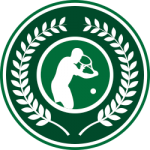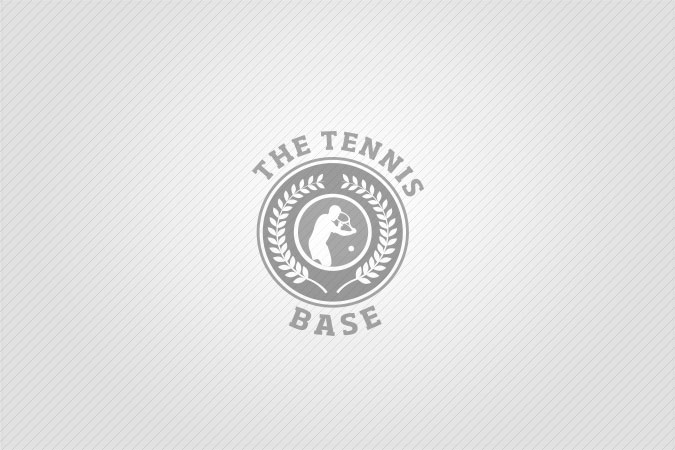The tennis week has been marked by the “affaire” Sharapova who, after recognizing her positive with Meldonium, a product indicated to improve the blood circulation and according to several experts does not improve athletic performance, faces with the unrelenting anti-doping sanctions, a more than likely media lynching and the sporting and social relegation.
Sharapova claims that she had no knowledge that the Meldonium had been added to the ever extensive list of banned substances. And it is hard to think that the Siberian may have jeopardized her career, her prestige and, above all, her economic empire by consuming a product of so little relevance and which influence in her results is zero.
But beyond if the positive of Sharapova is accidental or intentional, it is worth reflecting about the problem of doping and the policies with which it is pursued. In the past 18 years, as a result of the Festina´s case in the Tour de France in 1998, it has been invested much time and money on demonizing doping in a process of social engineering that could serve as an illustrative example of how the authorities can induce a certain idea or feeling in citizenship.
The problem begins with the same concept of doping. The WADA, in the World Anti-Doping Code defines it as “the occurrence of one or more of the anti-doping rule violations “. A circular definition of this nature – something is what I say it is – shows that the WADA has not been able to find an objective conceptualisation. On the other hand, such a unidirectional categorisation gives a huge power to the authority that can manage the list of prohibited substances at will, especially when one of the conditions set by WADA to consider a substance as a dopant is something as imprecise as it “is contrary to the spirit of sport”.
Formed the collective conscience and supported by the political powers, WADA has been able to establish an anti-doping policy which collides directly with the fundamental rights of individuals. The presumption of innocence, the benefit of the doubt and the right to privacy are concepts that have been subordinates, despite the objections of many jurists, to the anti-doping regulations. The absence of guilt or intentionally of the athlete does not constitute any defence in what has been called regulation of “strict liability”. The violation of such basic guarantees as well as other elements such as the reward for the denunciation and the public defenestration of the athlete are comparable methods to the opinio malis of inquisitorial processes. In this sense, the anti-doping campaign represents a setback of seven centuries in what refers to the legal protection of the individual.
The WADA, unlike any ordinary legal system, does not recognize exemption causes and hardly considered mitigating circumstances. So doped is an athlete full of anabolic steroids than an accidental positive, for example by snorting a line of cocaine, unrelated to the methods of preparation of the athlete. Nor is there a figure of attempted doping. The WADA does not even need that the doping occurs effectively, already the absence to a control, do not communicate the place of stay for three times or find banned substances to persons belonging to the team of the athlete are considered automatically doping.
The anti-doping campaign has been gradually shifting the focal point, originally located in preserving the health of the athlete – a matter concerning the freedom of the individual-, to the ideal of fair play, a sacrosanct concept that must be defended above any consideration of its enemies, who are none other than athletes, always under suspicion. In the case of Sharapova, there have been quite voices pointing directly to the Russian as cheater and claiming that she should be dispossessed all her titles. However, if a football player flops in the area or score a goal with the hand, explicit traps after all, no one uses such description, it is used terms like “crook” or “smart” which not only exonerated to the cheater, but reinforce positively such actions.
Such paradoxical and extremist scene leads to inevitable issues. What is the real purpose of the anti-doping campaign? Why it is left in the hands of politicians, putting aside the athletes, only protagonists and affected, of its conceptualization and articulation? What is behind a holy war in which even inalienable rights are suspended?
Sport is not only a great business, also is a social stimulus of the first magnitude. Athletes are admired and they are object of emulation. Also we must not forget that sport is the only social activity of relevance governed by a meritocratic principle; athletes compete against each other under the same rules, and whoever wins is the best. That gives the athlete a specific aura – the glory – unachievable in any other activity. Anyone can be President of the Government or Nobel Prize or win an Oscar, but all those achievements are not reached in a pure competition as in the case of sport.
That is why the political power looks at the sport askance. Sheltered in a concept as pure as fair play, anti-doping campaign is actually a tool of incalculable utility that, casting suspicion and the discredit in the sport, manages to effectively reduce the dimension of the athlete and limit his huge potential of social influence. It is so worthwhile for the politician make a photo with the new idol, as proceed to his demystification-or failing that, his sport or environment – when it is convenient. Some reactions, such as the French former Minister Rosalyne Bachelot, charging head-on against Rafael Nadal are not but the most awkward expression of the undisguised aversion of powers towards the growing power of the professional athlete.
It is also significant to observe how anti-doping policies focus on the professional field instead of acting in more modest strata, where is really a problem. The professional athlete has all the care and medical supervision at their disposal, while the amateur not only is not lack of such media, but they also do not possesses the necessary knowledge, falling usually in high-risk health practices; a doping not only dangerous, but also more generalized. Invest in the eradication of doping at those levels with policies of prevention and education is an absolute necessity, but, of course, lacks any political profit.
Doping is a problem that could be attacked much more efficiency with consensus policies, with the unavoidable participation of the sportsmen, focusing on those substances that represent a real risk to health, with a social and integrating focus and adapting the sanctions to the enforceable principles of proportionality, depending on the offence committed. The current policy anti-doping, extremist, demonizing and exclusively sanctioning vocation, should be questioned because if doping is a problem, the anti-doping campaign, thus conceived, is not less.



Leave a Reply
You must be logged in to post a comment.